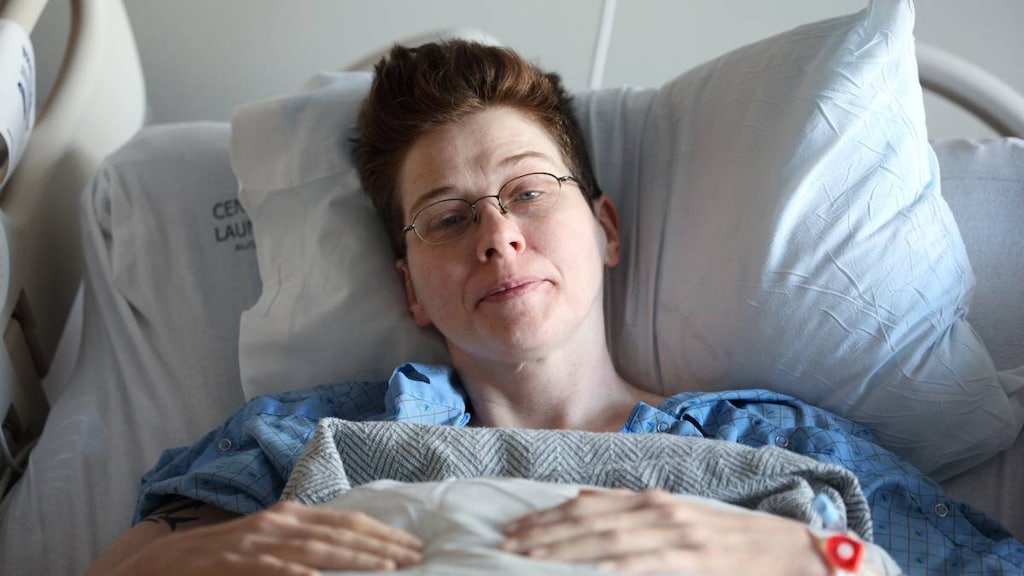IBS vs. IBD: The Differences and Similarities Explained

It can be easy to feel confused about the differences between irritable bowel syndrome (IBS) and inflammatory bowel disease (IBD). Both health problems affect the gut and have some overlap in symptoms. However, they’re not the same thing and the treatments are very different as well.
What is irritable bowel syndrome?
IBS is a disturbance in bowel function. This makes it a functional gastrointestinal (GI) disorder, according to the Crohn’s & Colitis Foundation. Some people with IBS experience loose stools that lead them to run frequently to the bathroom. Others have more constipation and trouble passing stools. There’s also a segment of people with IBS who have a mix of these problems.
What is inflammatory bowel disease?
IBD is a broader term for several disorders. These disorders are all associated with GI tract abnormalities that cause inflammation, irritation and ulcers. The most common disorders under the IBD umbrella are Crohn’s disease and ulcerative colitis, according to the International Foundation for Gastrointestinal Disorders. Crohn’s disease causes inflammation of the entire GI tract. That inflammation can happen anywhere along the GI tract, but the small intestine is the area most often affected. Ulcerative colitis causes ulcers along the rectum and colon lining, which together form the large intestine. The ulcers and inflammation cause the symptoms associated with ulcerative colitis.
Some people have both IBD and IBS. While IBD can cause permanent damage to the intestines and harmful inflammation, IBS is a group of symptoms that does not cause inflammation, the Crohn’s & Colitis Foundation says.
What are the symptoms of IBS vs. IBD?
The symptoms of IBS differ, along with their intensity, depending on the person. Generally speaking, IBS symptoms include:
- Gas
- Diarrhea
- Constipation
- Bloating
- Nausea
- The feeling of needing to move your bowels but not being able to have a bowel movement
- Abdominal cramping
- Mucus in the stool
The symptoms of IBD differ depending on the specific disease a person has. For instance, a person with Crohn’s disease may have the following symptoms:
- Weight loss
- Chronic diarrhea
- A fever
- A feeling of abdominal pain and tenderness
- A feeling of fullness in the lower right abdomen
Other symptoms could include fatigue, blood in the stools, joint pain and loss of appetite, the American College of Gastroenterology (ACG) reports.
The following symptoms are associated with ulcerative colitis:
- Diarrhea that may become bloody
- Abdominal pain
- A fever
How are IBS and IBD diagnosed?
It can be hard to diagnose IBS and IBD. That’s because the symptoms can be commonly confused between the two. If you are having symptoms of IBS or IBD, you should see a doctor to help pinpoint the exact cause.
When diagnosing IBS, a doctor will consider your symptoms, perform a physical exam and perform some diagnostic testing. Your doctor also will likely use something called the Rome Diagnostic Criteria, which states that you should have symptoms consistent with IBS for at least three months within the past 12 months for the diagnosis of IBS to be considered. As your doctor listens to your symptoms, he or she may decide to order additional tests to rule out other possible gastrointestinal disorders. This could include a blood test or a colonoscopy.
For IBD, a diagnosis will include a physical exam. Make sure to let your doctor know your medical history and your current symptoms. Your doctor also may want blood tests, a stool sample, an endoscopy, a colonoscopy with biopsy, and a CT scan (this can help detect bowel wall abnormalities). An endoscopic exam involves the use of an imaging device called an endoscope that also can remove tissue for the biopsy.
How are IBS and IBD treated?
Both IBS and IBD can feel uncomfortable and make it hard to go out in social situations. However, there are treatments available.
Treatments for IBS can include the following:
- Medication. Although there’s no specific medicine that relieves the symptoms for everyone with IBS, some people find that medication helps. The types of medications used with IBS may include anti-diarrheal medications, fiber supplements and antidepressants. (The antidepressants can help control pain in the intestines but also aid in treating depression.)
- Education and diet changes. Some people with IBS have triggers based on what they eat. This leads them to carefully pay attention to what they eat and make changes when they suspect there is a food causing symptoms. Sometimes, a low-FODMAP diet helps. FODMAP is an acronym for Fermentable Oligo-, Di-, Mono-saccharides and Plyols, which are short chain carbohydrates that are poorly absorbed by the small intestine. It is often suggested for people with IBS to help reduce symptoms. A low-FODMAP diet limits foods that are high in fructose (a type of sugar), lactose (found in dairy products), beans, onions, broccoli, and cabbage. A FODMAP diet can be hard to follow, so it’s best done with guidance from a registered dietitian.
- Stress management. Because stress can make IBS worse, stress management techniques such as hypnosis, biofeedback, cognitive behavioral therapy and relaxation can be helpful, the International Foundation for Gastrointestinal Disorders says.
There are other treatments for IBS that do not have as much scientific data to support them. These include the use of probiotics (a type of “good” bacteria) for the gut, peppermint oil, and acupuncture.
IBS can come and go throughout life. That’s why it’s important to find treatments that can reduce the symptoms so you can manage them when needed.
The treatment for IBD is quite different compared to IBS. There’s more of a focus on medication and sometimes even surgery. The goal of treatment is to help symptoms, heal bowel inflammation and improve quality of life, according to the ACG. Ideally, the treatments will lower the number of disease flare-ups that you have.
For Crohn’s disease, the treatments include the following:
- Medications. These can include antibiotics (to help reduce bacteria in the intestines and heal any sores), steroids (to lower inflammation), immunosuppressant medications (these can lower inflammation and help the intestinal tissue to heal), and biologic therapy (these can help block the body’s immune response and more commonly used in moderate to severe disease).
- Surgery. If there are disease-related complications and other treatments are not helping enough, doctors may sometimes choose surgery. Surgery is used in almost 50 percent of people with Crohn’s disease. Although this doesn’t get rid of your Crohn’s disease, it can provide temporary help, the ACG reports.
Additionally, liquid diets may be used in children with Crohn’s disease. Intravenous (IV) therapy, where food is given through an IV catheter inserted in a vein, is sometimes used in adults with severe disease.
The treatments for ulcerative colitis are similar to those for Crohn’s disease. These include:
- Medications. The types of medications used for ulcerative colitis include aminosalicylates (geared toward reducing inflammation), steroids (used to help remission in moderate to severe ulcerative colitis), immunomodulators (geared toward those with moderate or severe ulcerative colitis to help maintain remission), and biologics (used to block the body’s immune response).
Other medications sometimes used when you have ulcerative colitis include cyclosporine and tacrolimus. These may be used if you are not responding to steroid treatment.
With both ulcerative colitis and Crohn’s disease, medications can have side effects. Make sure you talk with your doctor about those potential side effects and what treatments are right for you. It’s also important to use your medications as prescribed so you and your doctor can help identify what helps treat your ulcerative colitis most effectively.
- Surgery. There are several kinds of surgery for ulcerative colitis, including removal of the entire large intestine. This may be an option if you don’t respond to medications, have many side effects from medication, develop cancer or if a child is not growing due to ulcerative colitis.
Article references
- Crohn’s & Colitis Foundation, “IBS vs IBD” https://www.crohnscolitisfoundation.org/what-is-ibd/ibs-vs-ibd
- International Foundation for Gastrointestinal Disorders, “Inflammatory bowel disease” https://www.iffgd.org/other-disorders/inflammatory-bowel-disease.html
- Cleveland Clinic, “IBD and IBS: Q & A.” https://my.clevelandclinic.org/health/articles/9669-ibd----ibs-q--a
- American College of Gastroenterology, “Inflammatory bowel disease” https://gi.org/topics/inflammatory-bowel-disease/#tabs2
- American College of Gastroenterology, “Irritable bowel syndrome” https://gi.org/topics/irritable-bowel-syndrome/#tabs2
- International Foundation for Gastrointestinal Disorders, “Irritable bowel syndrome” https://www.iffgd.org/lower-gi-disorders/irritable-bowel-syndrome.html, https://aboutibs.org/treatment-main.html





